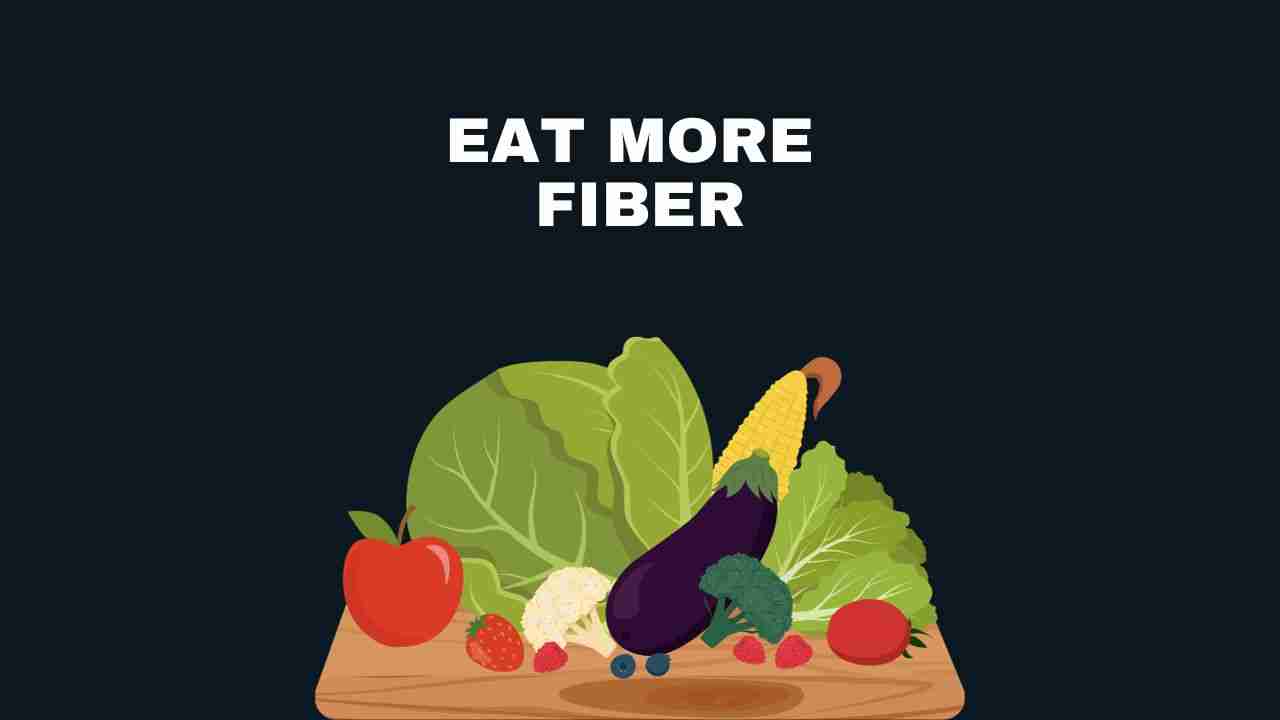The importance of maintaining a healthy lifestyle has increased significantly in today’s fast-paced world. One key element that impacts your well-being is your diet. For a longer life and a happier gut, there’s a simple yet powerful solution: eat more fiber. The benefits of fiber are numerous, and we’ll explore them all in this comprehensive guide. From understanding what fiber is to practical tips on increasing your daily intake.
The Fiber Advantage
Fiber is often underestimated in the realm of nutrition, but its impact on your overall health is profound. Let’s delve into the various aspects of how fiber can contribute to a longer, healthier life and a happier gut.
What Is Fiber?
Fiber, also known as roughage, is the indigestible part of plant foods. It comes in two forms: soluble and insoluble. While soluble fiber dissolves in water, insoluble fiber does not. Both types play unique roles in promoting good health.
How Fiber Benefits Your Gut
A high-fiber diet is like a spa day for your gut. It promotes regular bowel movements, prevents constipation, and alleviates common digestive issues. Moreover, fiber acts as a prebiotic, nourishing the beneficial bacteria in your gut and contributing to a healthier microbiome.
Fiber and Weight Management
If you’re looking to shed a few pounds or maintain a healthy weight, fiber is your ally. High-fiber foods keep you feeling full for longer, reducing overall calorie consumption and aiding in weight management.
Fiber and Heart Health
Eating more fiber can significantly lower your risk of heart disease. It helps lower cholesterol levels and regulates blood pressure, safeguarding your heart’s well-being.
Fiber and Blood Sugar Control
For those concerned about diabetes, fiber can help stabilize blood sugar levels. It slows down the absorption of sugar, preventing rapid spikes and crashes.
Fiber and Cancer Prevention
Research suggests that a fiber-rich diet may reduce the risk of certain types of cancer, particularly colorectal cancer. It does this by promoting healthy digestion and reducing inflammation in the colon.
Also check: How to Reduce Sugar Intake for Better Health
Fiber Sources
Now that you understand the advantages of fiber, let’s explore some excellent sources to incorporate into your diet:
1. Fruits and Vegetables
- Apples
- Pears
- Broccoli
- Carrots
- Spinach
2. Whole Grains
- Oats
- Brown rice
- Quinoa
- Whole wheat pasta
- Barley
3. Legumes
- Lentils
- Chickpeas
- Black beans
- Peas
4. Nuts and Seeds
- Almonds
- Chia seeds
- Flaxseeds
- Sunflower seeds
Also check: The Importance of Balanced Nutrition
Practical Tips for Increasing Fiber Intake
Now that you know where to find fiber, let’s discuss how to incorporate more of it into your daily meals:
1. Start Gradually
Sudden dietary changes can lead to discomfort. Increase your fiber intake slowly to allow your digestive system to adjust.
2. Choose Whole Foods
Opt for whole grains, fresh fruits, and vegetables over processed foods. Whole foods contain more fiber and fewer additives.
3. Experiment with Recipes
Explore new recipes that incorporate fiber-rich ingredients. Soups, salads, and stir-fries are excellent choices.
4. Snack Smart
Choose fiber-rich snacks like nuts, seeds, or raw vegetables to curb your hunger between meals.
5. Stay Hydrated
Drink plenty of water to help fiber move through your digestive system smoothly.
6. Read Labels
When shopping for packaged foods, check the nutrition labels for fiber content. Aim for products with higher fiber content.
FAQs
The recommended daily intake of fiber varies by age and gender, but a general guideline is around 25 grams for adult women and 38 grams for adult men.
In some cases, a sudden increase in fiber intake may lead to gas or bloating. To minimize discomfort, increase your fiber intake gradually.
While fiber supplements can be helpful, it’s best to obtain fiber from natural food sources whenever possible, as they provide additional nutrients.
Yes, fiber can aid in weight loss by promoting a feeling of fullness and reducing overall calorie intake.
